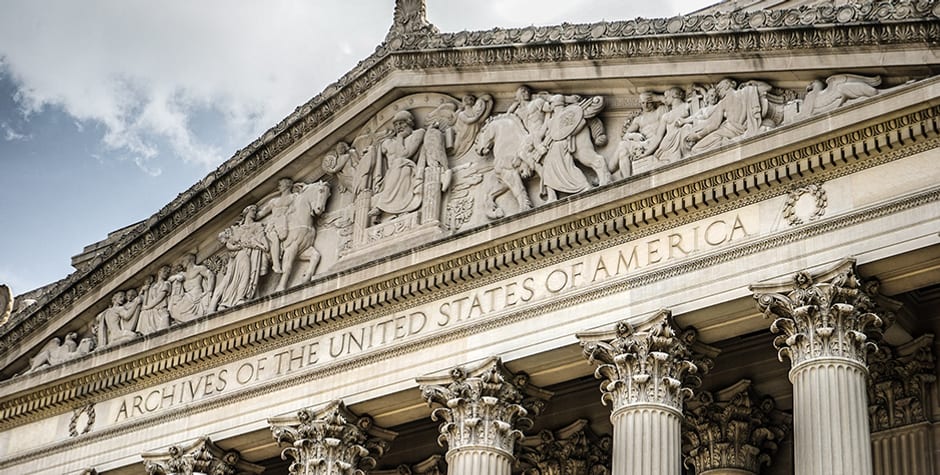National Archives Responds to ACLJ FOIA on the Biden Records, Provides First Set of Documents Retrieved in Response
The saga of President Joe Biden and the classified documents continues to unravel, and now after we demanded transparency from the Biden Administration through our expedited Freedom of Information Act (FOIA) request, the National Archives has just responded by releasing some of the records that it has retrieved in response to our FOIA demand – the day before its deadline expired and our imminent lawsuit.
It was just over a month ago that we told you how President Biden claimed to be “surprised” when the first batch of classified documents from his time as Vice President was discovered in a private office he had used at the Penn Biden Center. At the time, Biden claimed: “People know I take classified documents and classified information seriously.”
But then, casting serious doubt on the President’s claim, it turned out Biden had more docs just sitting in the garage of his house in Delaware. Oh, and more documents were discovered inside his library as well.
It became harder and harder to believe the President didn’t know he had all these sensitive records stashed all around the country. As we reported, even Biden’s own Attorney General, Merrick Garland, had no other recourse but to appoint a Special Counsel to investigate Biden’s possession of these documents. We now know that the Justice Department was prepared to obtain a search warrant to investigate Biden’s home if he refused to cooperate – which means they suspected criminal activity.
That’s exactly why the ACLJ filed our urgent FOIA. Enough is enough – how are these documents appearing? We demanded all records from the National Archives (NARA) about these documents that would show: When did NARA realize they were missing? Who knew about it? What did NARA tell Vice President Biden’s team as they transitioned out of office? What did that Biden team tell NARA? What was done? And most of all, why weren’t the American people told sooner?
While the Biden Administration’s modus operandi thus far has been to ignore our FOIA requests, the National Archives just released some 76 documents in response to our demand (numbered as NGC-188, and as to which they had previously granted expedited processing). As they explained to us in their letter, the records were posted on the NARA website.
It’s important to note this is only the first batch of government records. Our legal department is examining each one, and we anticipate more documents still to come. However, it’s also key to highlight that these records date back to November 1, 2022. In fact, among the records released by NARA, we now have emails time-stamped November 7, 2022, discussing the materials found at the Penn Biden Center and the need to search for more. In fact, the breaking reporting you may have seen regarding emails between Team Biden and the National Archives about “boxes [of documents] in Boston” is from our FOIA.
That means NARA knew Biden had documents the whole time the President was railing against former President Trump for being “irresponsible” after the FBI raided Trump’s Mar-a-Lago home in Florida and found classified documents. So while President Biden was calling for investigations, he had his own document scandal brewing in the wings.
And as we’ve told you before, while we’re still discovering what these latest records entail, we do know that some of the documents were regarding Iran – and others Ukraine, the subject of the first impeachment trial of then-President Donald Trump. Ukraine is also a major factor in President Biden’s own past business dealings, along with his son Hunter Biden.
This is why we don’t let these things go. Because of your support, we were able to file our expedited FOIA to help uncover this information. Now the question remains, why did President Biden have these sensitive records in his possession at all? Was he planning to use them, and how? They should have been handed over to the National Archives six years ago when he left his office as Vice President.
We appreciate the cooperation of the National Archives and hope more documents are made public soon. In the meantime, we will continue to review the documents that we have and keep you updated with our findings, as well as what legal actions might be necessary based on our findings.

